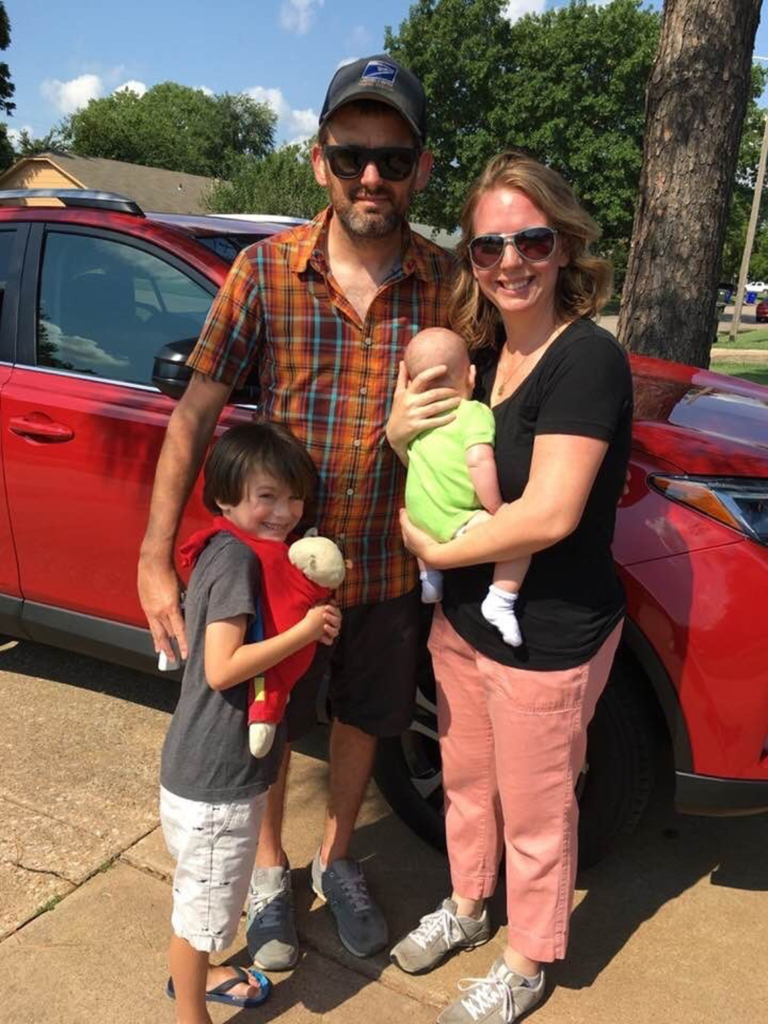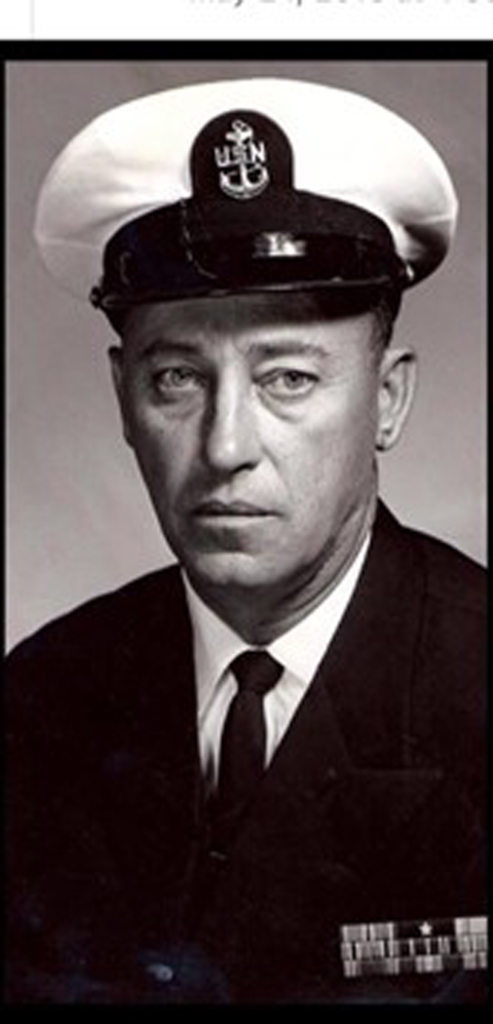A scholarship committee created by the Citizen Potawatomi Nation selected Sarah Dunigan as the second recipient of the Michael John Kennedy Scholarship. She attends the University of Oklahoma in Norman and plans to graduate with her Bachelor of Arts and Sciences in multidisciplinary studies in May 2023. She learned she won the scholarship in October 2022.

“It’s so helpful (with) the financial burden of going back to school and trying to balance finances,” Dunigan said. “(Winning) pretty much brought me to tears because it’s hard. I’m very excited, to say the least.”
Founded in remembrance of its namesake, the award goes to a higher education upperclassman with at least a 3.0 GPA who is also the child or grandchild of a veteran. Kennedy served in the Vietnam War and never finished his degree.
Medical career
Dunigan’s impressive career in medicine spans more than a decade and includes time working in labs, completing diagnostic imaging, helping patients navigate their dietary requirements and more. She enjoys puzzles, science, technology and the challenge of putting together someone’s medical history and current situation to create a new plan.
“The more I learn, the more excited I get about it because the body is amazing. I think that we need to do a lot of work on preventative care in our society and especially our community so we can maybe try to cut out some of the chronic illness that we have. … All of it is very fascinating to me,” Dunigan said.
Currently a nontraditional student in her mid-40s, she plans to complete her degree in spring 2023. She continues to work on a contract basis as a radiology technologist for two hospitals in the Norman, Oklahoma area while attending school. Dunigan worked through the coronavirus pandemic alongside pulmonologists in the intensive care unit as they cared for patients with COVID-19.
“I remembered the courage of my ancestors as I faced an unknown enemy each day. It was difficult, but I watched and participated as we found new and innovative ways to treat COVID and the devastating effects of it,” she said.
Many hospitals and other facilities faced staffing shortages as doctors and other support employees resigned due to burnout and extreme stress and anxiety caused by the pandemic. Dunigan’s experience made her want to take the next step in her career.
“During COVID, I just decided that I needed to be more involved,” she said. “There are more things that I could be doing and want to do, and people need more help. We need more health care. We need more health care physicians and all staff. That’s when I decided to go back to school and do my prerequisites.”
After graduation, she plans to continue her studies and attend physician’s assistant school.
Generations of veterans
The CPN Department of Education requires applicants for the Michael John Kennedy Scholarship to write an essay as part of the selection process about how modern or historical Potawatomi warriors impact the Nation. Dunigan highlighted her family and three generations of relatives who served in the military throughout the 20th century.

“I am the proud daughter, granddaughter, and great-granddaughter of veterans. Veteran heroes run in our family,” she wrote.
She and her mother began discussing their family’s military service history, and Dunigan learned information she never knew. She mentions veterans on her mom’s side, some of them descendants of Lizzy Young and the Young family.
Her maternal grandfather, Master Chief Petty Officer Ed Hinesley, enlisted in the United States Air Force at 17 years old and was deployed during WWII. He then worked on an aircraft carrier throughout the Korean War and the beginning of the Vietnam War.
U.S. Marine Corps Reserve Sergeant Max Earnest Austelle was the grandson of Lizzy Young and died in the Battle of Iwo Jima during WWII at 24 years old. The military posthumously awarded him the Purple Heart for his sacrifice.
“The bravery of surviving Pearl Harbor and going to the battles at Iwo Jima knowing he was facing death is truly an inspiration to me. That is no small feat,” Dunigan said.
Her mother, Aggie Busby, served as a lieutenant in the U.S. Public Health Service as a registered nurse. She spent years as a labor and delivery nurse at the Carl Albert Indian Health Facility, which later became the Chickasaw Nation Medical Center in Ada, Oklahoma. She delivered more than 1,000 babies during her career.
“(My mom) has always taught me, ‘Don’t do things the way I do them because it’s been hard.’ And she has struggled. And we’ve seen that — all of us kids have. And I use her specifically a lot to get strength from where she got strength, which was from our ancestors,” Dunigan said.
“I honor them by retelling their story and trying to be the best version of myself to help my people in the future. After all, they are the reason I get to be here now.”
Find more information about the Michael John Kennedy Scholarship at cpn.news/kennedy. Apply online at portal.potawatomi.org.
